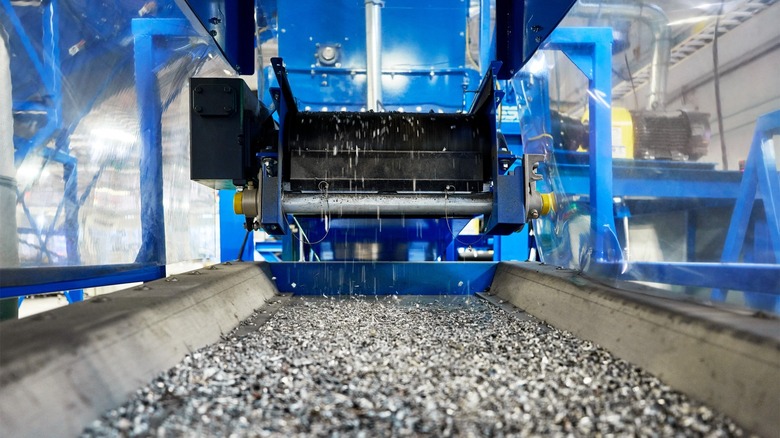Apple Recycled More Than Ever Last Year
Apple has released the latest edition of its Environmental Progress Report detailing the company's efforts toward creating a more sustainable resource utilization framework and boosting green initiatives such as recycling materials. In 2021, Apple claims to have used 20% recycled materials across its entire product lineup, the highest ever in the company's history.
Aluminum appears to be the most recycled element in the mix, as the company notes that 59% of all aluminum in Apple's products was recycled. A few Apple products, like the entire iPad lineup, used enclosures that were made from 100% recycled Aluminum.
For the first time ever, Apple started using certified recycled gold in its devices. The first devices that used certified recycled gold were the iPhone 13 and iPhone 13 Pro, which use recycled gold in wires for their cameras and plating their logic boards. A healthy 45% share of rare earth elements used in Apple products released in 2021 were recycled. The company also claims to have used 13% recycled Cobalt, and 30% certified recycled Tin in Apple products in the year 2021.
In 2021, Apple released eight products that were constructed of 20% or more recycled material, while the company more than doubled its recycled Tungsten levels compared to 2020. Over the course of 2021, the company claims to have evaluated 1,000 new materials for biocompatibility with future products and recyclability.
Plastic also makes an appearance in the latest report, as it only accounted for 4% of packaging material for Apple products sold in 2021. Apple suggested that it is aiming to phase plastic out of its packaging materials completely by the year 2025.
Massive strides toward a more eco-friendly company
The Tim Cook-led company claims that despite its revenue figures soaring by 33% in the last fiscal quarter, net emissions stayed at zero. Aside from using recycled material, Apple suggests that it is also actively cutting down on resource waste. The report notes that zero waste was sent to landfills from final assembly and sub-assembly sites in the manufacturing of Apple Watch Series 7.
Overall, Apple says it reduced 23-million metric tons worth of emissions from its operations and reduced its overall carbon footprint by 40% in the year 2021. Apple aims to achieve carbon neutrality and a net-zero climate impact for its entire product lineup by 2030. Apple also aims to move its entire product supply chain to renewable electricity by the end of 2029. In a bid to boost its recycling efforts, Apple has introduced a new iPhone-shredding robot called Taz that will primarily focus on recovering rare-Earth minerals. Meanwhile, the existing iPhone-disassembly Daisy robot saw its compatibility with iPhone models go from 15 to 23.

